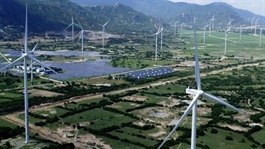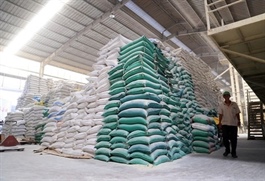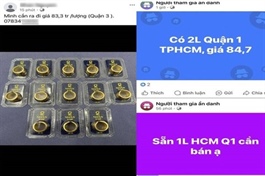Vietnam’s auto sales surge in September
Vietnam’s auto sales surge in September
Over 36,580 cars were sold in Vietnam in September, a 45-percent month-on-month increase, according to data released by the Vietnam Automobile Manufacturers' Association (VAMA) on Thursday.

A customer visits a car showroom in Vietnam. Photo: Cong Trung / Tuoi Tre |
An average of 1,220 cars were purchased each day in September.
The surge in auto sales last month reflected a boom in car consumption in the local market, supported by a 50-percent reduction in registration fees for domestically assembled vehicles, effective from September 1 to November 30, according to several auto firms.
The government announced the registration fee cut in late August, labeling it a stimulus move to support the domestic automotive industry, marking the fourth consecutive year in which car registration fees have been halved.
Sales of locally assembled automobiles soared 62 percent in September against August, at 19,500 units.
Consumers also purchased 17,085 imported cars last month, up 30 percent month on month.
The increased consumption of both locally assembled automobiles and imported cars illustrated a strengthening Vietnamese auto market.
Sales employees at several showrooms in Ho Chi Minh City reported a significant increase in customer traffic to their auto shops since early September.
According to auto experts, the car registration fee cut not only helps stimulate consumption but also alleviates consumer hesitation amid high lending rates.
Vehicle purchases are expected to continue spiking through the end of the year.
In Vietnam, Toyota sold the most cars with 6,990 units in September, followed by Mitsubishi with 5,385 cars, Kia with 4,015 cars, and Ford with 3,967 units.
Members of the VAMA hit total sales at over 225,589 cars between January and September, a year-on-year increase of 7.5 percent.
That figure did not include sales from non-member brands such as Audi, Jaguar Land Rover, Mercedes-Benz, Subaru, Volkswagen, and Volvo, all of which have yet to publicize their sales data.




























